If you really want to be beneficiating both from ketosis, to burn down your own fat for energy, and autophagy, which will be the detox effect of a fast, when you’re fasting, then you’ll have to be really strict about the way you do your fast. So you might wonder what you can eat or drink without breaking a fast?
Water, still or sparkling, most teas and black coffee are the only things you can drink or eat without breaking a fast. But certain drinks have so many other benefits (such as lemon juice) that they can outgrow the risks of breaking your fast. You can also add artificial sweeteners, but those have other ill-effects, so it is not advisable.
And I know that can be a downer to read that when you’ll be doing your seven days fast in a month, you’ll only have those three healthy drinks to rely on. I will address that.
Let’s dive more into what you can actually eat and drink on a fast, what are the benefits of some “might-be-breaking-fast” foods and what will break a fast, contrary to what you might think.
Foreword
This article isn’t about telling you that eating candy, drinking coke or having french fries will break a fast. Most foods and drinks break a fast, if you’re wondering if eating vegetables break a fast, yes it does, and you should read a bit more about fasting before reading this article!
This article will be about foods that are sometimes advised to have when doing certain types of fasting, like vegetable broths, herbal tea, lemon juice, etc. and the ones that technically break a fast. What I want to talk about is three categories of foods :
- The ones that definitely won’t break a fast
- The gray area, foods that could potentially break a fast but even science isn’t clear about it
- The ones that will break a fast, even though some people don’t think it does
But keep in mind, I’m talking about strict fasting, not what will simply get you out of ketosis. Basically what types of food have calories, could raise blood sugar and technically break a fasted state and prevent autophagy.
If you’re an intermittent faster and you add lemon juice to your water some times or have bulletproof coffee because it makes you feel great, don’t read this article and suddenly think that those are bad for you. I’ll be talking about the way they affect your body, the way they can technically break your fast, but also what their other benefits are and how it could complement fasting in some ways.
Let’s dive in!
What won’t break a fast

Water / sparkling water
Of course, water won’t break a fast, it’s basically your go-to drink on an everyday basis. But also, sparkling water, which is just water with some added carbonic gas, is totally safe too and a great way to get out of the plain water routine.
What’s more about water when you’re fasting is that you should get used to drinking a lot of it. As an intermittent faster, I’m used to drinking around 2 liters a day on a regular day, going up to 4 liters when I’m doing one meal a day or prolonged fast.
That’s a lot of liquid absorption, but you’ll quickly see that it’s really important to stay hydrated all the time, water will help you prevent dizziness, fatigue and, logically, dry mouth.
Green tea / most teas
Here I’m putting green tea in front, for the added benefits it’ll give you when fasting, then most teas. Most tea means green tea, black tea, and white tea. This doesn’t include herbal tea like rooibos or fruit teas (I’ll talk about those later).
Those are safe when fasting, providing you don’t put sugar or cream in them, but I know you’re intelligent people and I won’t even mention it! More than being safe, they actually have other added benefits. And I’m not talking only about green tea, each type of tea can help promote weight loss in its own way.
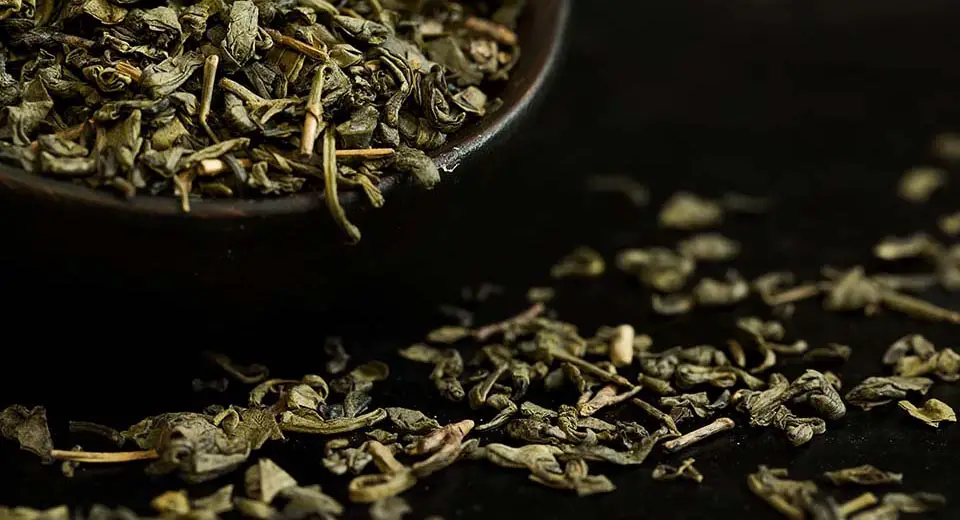
Green tea
The green tea plant is called Camellia Sinensis, inside of them lives a compound named green tea Catechins (GTC for short). A study done on the subject revealed that this GTC compound had powerful antiobesity properties. Consuming 270 to 1200 mg of GTC every day reduces body fat.
The main hypothesis on how that works is that GTC might stimulate the sympathetic nervous system (SNS) activity. SNS is responsible for the ‘fight or flight response’ in your body. Meaning if you’re looking for berries in the wilderness and get jumped by a bear, your body will release adrenaline, boost awareness and energy expenditure to help you choose as quickly as possible between fighting the bear or running for your life. And to give you the energy to do so.
When stimulating SNS, green tea will promote the burning of fat. Green tea also contains caffeine, which I’ll get into later. Caffeine is also known to alleviate the same kind of effects. When combined, they can amount to up to a 4% increase in calorie expenditure.
Moreover, green tea is also known to reduce appetite. So when intermittent fasting, consider having a mug of green tea to sip in during the morning and you should easily get through.
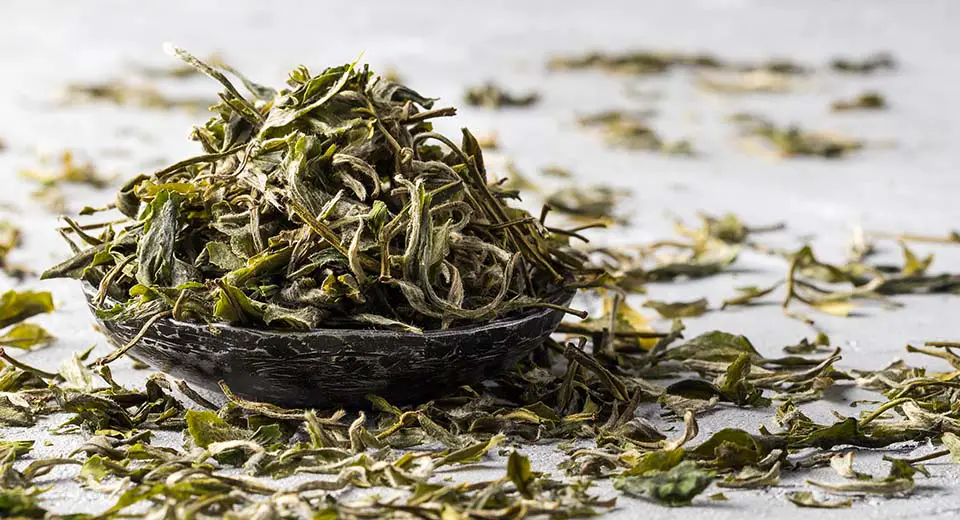
White tea
While green tea gets all the good rap, other types of tea also have great benefits when it comes to weight loss and white tea has some similar compounds to green tea, promoting weight loss. It’s mix caffeine and catechins, which are also found in green tea, are proved to improve weight loss.
A review study even showed that white tea can help increase your metabolism to up to 5%, which could be equal to around 100 more calorie expenditure a day.
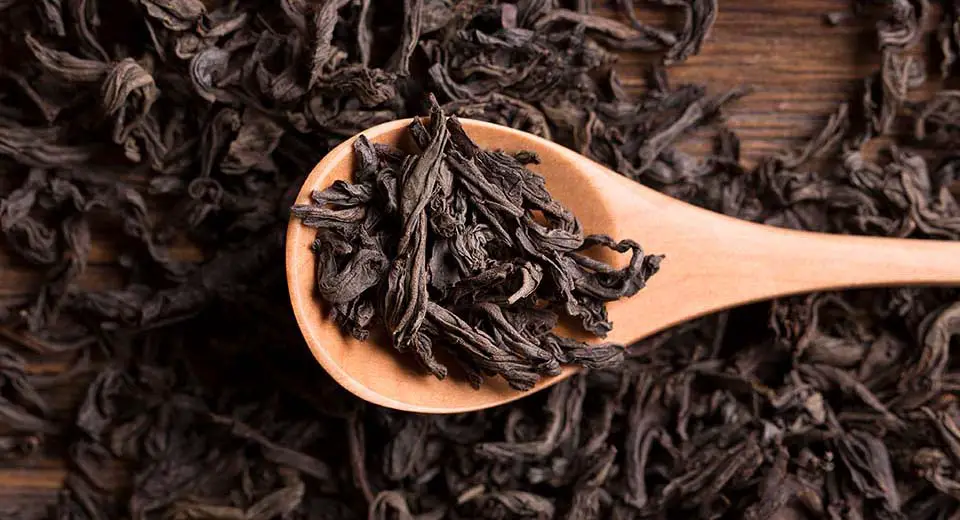
Black tea
It’s a less known fact, but black tea also helps promote weight loss. This study explains that decaffeinated green tea and black tea have a positive effect on the gut microbiome. Black tea promotes the production of short-chained fatty acids in the intestines and, by altering the microbiota, increases hepatic AMPK phosphorylation.
APMK, for AMP-activated protein kinase, is an enzyme that plays an important role in the metabolism, activating glucose and fatty acid uptake to be used as energy. Increasing APMK should help increase calory expenditure and fat burning.

Black coffee
No sugar, no cream, no milk, nothing. And I’m really not a huge fan of artificial sweeteners! So plain black coffee. I know it might be hard to pull off for some of you with the habit to add a little extra in it.
I used to add sugar to my coffee and when I decided to implement intermittent fasting, I had no choice but get used to coffee without sugar. Okay, I had another choice: not drink coffee. Yeah, right!
I’m not advising you to sip on coffee all day on a fast. I talked before that green tea could reduce appetite, so sipping a green tea mug in the morning would be a great companion when fasting. It’s the same with coffee. But both of those great companions have caffeine and overdoing it might lead to addiction.
Most of us are, in one way or another, addicted to caffeine, but not to the point of drinking coffee all day, messing up your blood pressure and heart rate, among other things.
Now that I’ve given you the usual caution about caffeine, more than just not breaking your fast, coffee and caffeine have really great benefits that are interestingly linked to the benefits of fasting.
Reducing appetite
That one is not really backed up by any real science, but everybody seems to say that coffee reduces appetite. And I can safely say that it does to me. I often feel satiated after a cup, and the effect might last a while, sometimes up to 3 hours.
This article/study, done on a very small sample of patients, seems to show that coffee intake had no impact on ghrelin or leptin levels. Those are respectively the hunger and satiety hormones. In the article, they even say that decaffeinated coffee seemed to have more effect on appetite than actual coffee.
And I can’t say otherwise, for a while, my morning mug of coffee was 80% deca and the effects on appetite, to me at least, were exactly the same. The article concludes that it’s mostly speculation and that the actual cause of reduced appetite is not clear. This other study on the subject seemed to show that coffee had very few influences on food intake and appetite.
But still, if it’s working for many people, screw the science!
Lowering metabolic inflammation
Metabolic syndrome is known as a type of inflammation characterized by high blood pressure, too much body fat and high blood sugar levels. Caffeine might have, according to studies, anti-inflammatory benefits, that help reduce the risk of metabolic syndrome. Which is funny, since fasting can also help reduce this risk.
This also means a reduced risk of type 2 diabetes, based on many studies on the subject, and lowering risks of heart diseases, up to an impressive 19%, with a daily intake of 700 ml of coffee.
Promoting brain health
Like intermittent fasting, coffee can have great benefits on brain health. For example, regular coffee intake can reduce the risks of Alzheimer’s and Parkinson’s disease according to this study. And like fasting, coffee helps :
- Ketones production. Ketones are the preferred energy for the brain and when in ketosis, your body will rely solely on ketone bodies for energy.
- Autophagy, which is one of the “detox” effect fasting has on your body. This process will recycle damaged and dead cells, among other things.
- Improve overall brain functions in the long term, decreasing risks of age-related mental illness.
What shouldn’t break a fast
If you’re going to be very strict about your fast, if you’re the kind of rock-solid guy that doesn’t move an inch on its principles and want the real thing, those foods aren’t for you. Either they contain a certain amount of calories or the science is not perfectly clear on their effect on a fasted body.
But if you’re ready to experiment and think about the benefits of some of them (not smoking of course), you could try and see if it fits you.
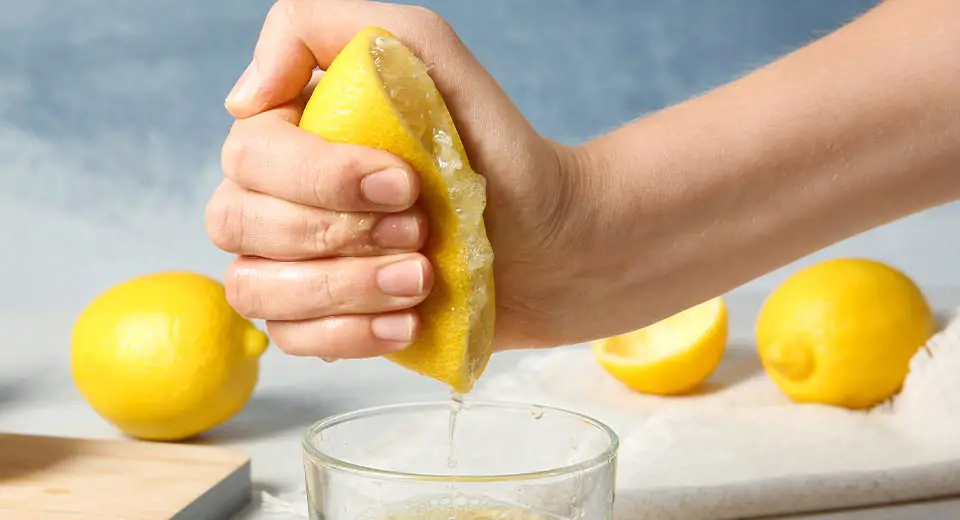
Lemon juice
Generally, lemon juice is added to water to give it some taste, and it is known to have many beneficial effects for the body. But lemon juice, even when squeezed, is still fructose and still has some calories. A glass of lemon juice is around 60 calories, so if you add this to you’re water during the day, you’re actually getting calories into your system. So basically, lemon juice is not fasting-safe.
But then why so many people advocating fasting talk about adding lemon juice to your water? Because its benefits fat overgrows the fact that it, very technically, breaks a fast. It won’t raise blood sugar, won’t elicit a metabolic response, won’t raise insulin levels and won’t prevent autophagy. So basically, apart from the hard science, adding some lemon to your water should be fine.
Here are some of the benefits of lemon juice when fasting:
- This is not science, but the taste of added lemon to your water will help you drink more. Drinking water is a huge part of a good fast and that added taste could help you get enough
- Of course, it’s an excellent source of vitamin C. When on a prolonged fast, you won’t be getting many vitamins and while vitamin C stores won’t deplete in a week, it’s still a welcome addition
- Moreover, lemons also are a rich source of magnesium, potassium, and calcium, which are essential minerals and very important when fasting
- It could potentially help with feeling satiated
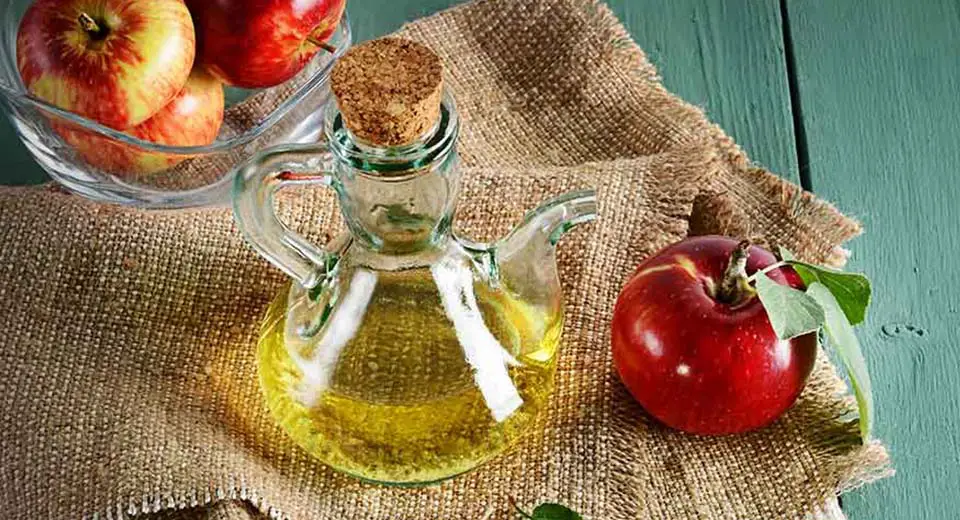
Apple cider vinegar
Apple Cider Vinegar, ACV for short, is becoming quite popular when speaking about diets, especially fasting and keto. I already mentioned it in my 11 best foods to break a fast, 6 foods to eat before a prolonged fast and 12 supplements to help you with fasting. ACV belongs to those 3 lists, no problem.
Usually, ACV is added in a cup of water, no more than a tablespoon. It is often combined with lemon juice and sometimes also with pink Himalayan salt. Depending on whether or not you like the acidic taste of ACV, but I found that with some lemon and salt it actually helped to drink more water.
But I realized that ACV was a bit controversial when it comes to breaking a fast. Since it has around 22 calories per 100 grams, it does break a fast. Again, technically. Adding a few drops inside a cup of water will have much more added benefits than this technicality. If you’re really strict about it, don’t use ACV. But just so you know, it has many benefits:
- Fasting helps balance the bacteria in the gut, as I mentioned in my article on the effects of fasting on digestion. And ACV can help a great deal too, it is known to kill off the bad bacteria in the gut, preventing bacterial overgrowth.
- It helps balances alkaline levels in the blood. With our bad eating and drinking habit, we’re generally more acidic than alkaline. ACV, ones ingested, becomes alkaline and helps balance PH levels.
- Like fasting, again, ACV promotes lower blood sugars and decreases insulin levels according to this study.
- It could prevent fat storage, this study on obese diabetic rats shown acetic acids was protecting them from further weight gain
- This study showed that ACV could be an effective appetite suppressant, inhibiting centers in the brain controlling appetite.
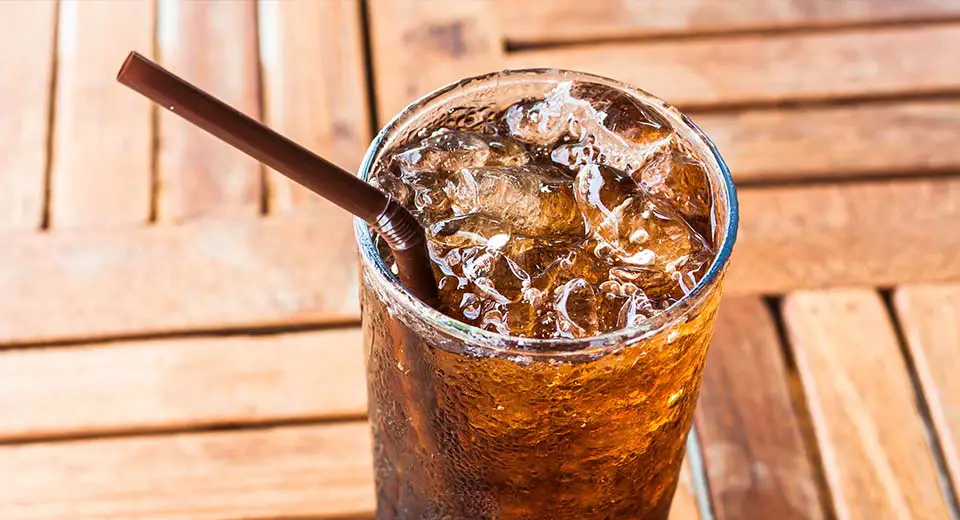
Artificial sweeteners
As much as I would like to say drinking diet coke or adding stevia caps to your coffee breaks a fast… there seems to be no evidence that it does. I even wrote a complete guide on artificial sweeteners, concluding they’re very bad for you, yes, but they won’t break your fast.
Artificial sweeteners come in many forms and most of them are highly processed. Like sugar coming from beet, stevia leaves go a long way before ending up in caps or even powder form. So many studies have been conducted on the ill-effects of artificial sweeteners:
- This study showed that drinking diet drinks daily increased risks of cardiovascular events by 30 percent.
- This study concluded that regular diet soda users had a 50 percent higher risk of metabolic syndrome ( high blood pressure and blood sugar, excess visceral fat, etc.)
- This other study stated that diet drinks increased the risks of obesity by 47 percent.
- Etc.
Of course, drinking a diet coke won’t be the same as adding some stevia powder to your morning coffee. And if you really need this to keep up with a fasting habit, I would argue the disadvantages of artificial sweeteners are outgrown by those of the fasting experiences.
But on a side-effect of artificial sweeteners could potentially make fasting harder for you. Sure, you indulged your sweet tooth with some stevia and you feel great. Only, not really. This study showed that while the reward center was fully activated in the brain when having glucose, it wasn’t with artificial sweeteners (in that case, sucralose).
Meaning your brain will actually crave for food and sugar, increasing appetite because you’ll give him sweetness, associated with calories and carbs, with none of those. This study on the neurobiology of sugar craving reaches the same conclusions.
So to conclude, you can have artificial sweeteners and even diet soda on a fast, there is no evidence proving it breaks the fast. But you should just be aware of the disadvantages of doing so.
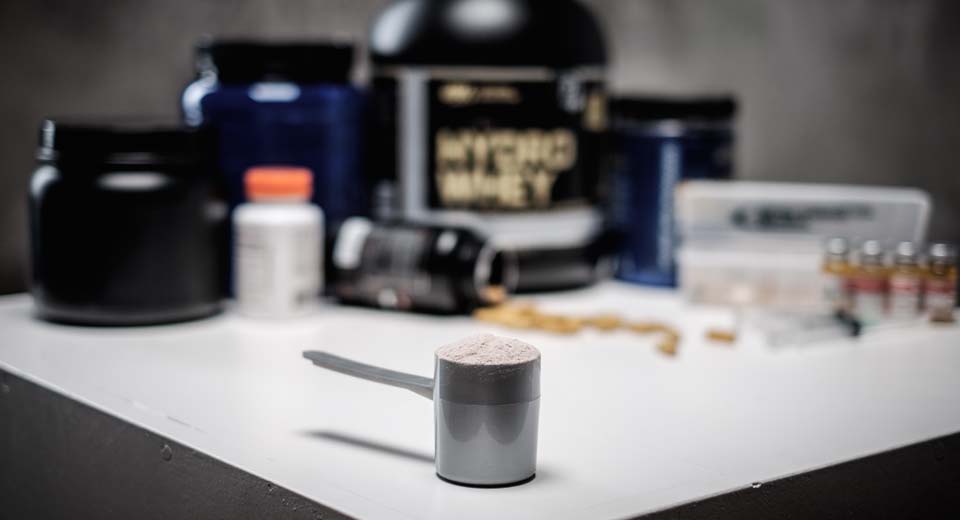
Pre-workouts and workout supplements
Those can take many forms and could include caffeine, green tea extracts, as well as BCAA, B Vitamins, amino acids and, of course, some artificial sweeteners. I’m not going to give you an exhaustive list of every variation you can see on the market, but I’m gonna tell you about what to look for in pre-workouts to know if this specific recipe might or might not break your fast.
I won’t be able to cover all the ingredients and, pre-workouts being highly processed, there might be some stuff in them that could break a fast or prevent autophagy which I wouldn’t even be aware of. Of course, of the energetic value of a pre-workout supplement has calories, you will break your fast. That’s easy enough!
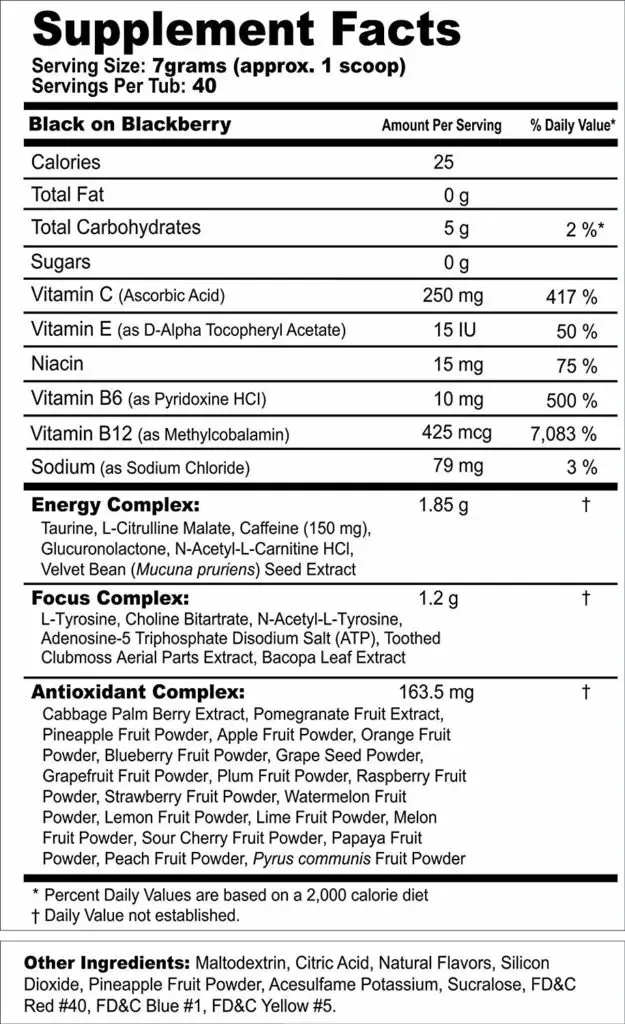
But they don’t always state the number of carbs or calories per serving and sometimes it can be quite difficult to know if a pre-workout will break a fast or not. When looking at this one from Red Leaf or this one from PRO SUPPS, it seems that they both don’t contain any carb or calorie, and none of the risky ingredients I’ll mention. But some of the added flavoury stuff leaves me doubtful on whether or not it would break a fast (beet juice, soluble dietary fibers, etc.).
Anyway, here are a few of the most prominent ingredients in pre-workouts and their effect on a fast.
✓ Caffeine, green tea extract, salt
I already talked about the benefits of caffeine and green tea so you’re totally fine there. And salt, especially pink Himalayan salt, is a great supplement to add to water when fasting, to prevent fatigue and headache, and it won’t break your fast.
✓ Sweeteners
As I mentioned above, artificial sweeteners won’t break your fast. Sucralose, stevia, they should be fine with your fasting. They have many other disadvantages and if you can find pre-workouts without sweeteners, that would still be better.
✓ Creatine
Creatine can be found almost anywhere in your body, 95% of it is present in your muscles and the last 5% is in your brain. It is formed of three amino acids: L-arginine, glycine, and L-methionine. It can be naturally produced by your body.
Your body doesn’t need more than 3 grams of creatine a day, half of it coming from what you’re ingesting and the other half is produced by your body. Its main function is to supply energy to the part of your body that need it. When supplementing with creatine, it has been found that it improves strength, endurance, power, fat-free mass, etc.
It also seems to promote muscle gain, this could come from two things :
- The fact that you’re doing more intense workouts due to the performance enhancement of creating
- Water retention in the muscles, which creatine promotes a great deal
Creatine is 100% percent fasting-safe, so L-arginine, glycine, L-methionine, and creatine in pre-workouts won’t be a problem for your fast.
✓ Beta-Alanine
This non-essential amino acid is used to synthesize protein. Coupled with histidine, another amino acid, it will produce carnosine, which is stored in the muscle. The effect of carnosine in the muscle is to reduce lactic acid production.
When you’re exercising, your body will break down glucose in the muscle and the muscle will lactate, producing lactic acid. This will make your muscles more acidic and prevent the breaking down of glucose, leading to muscle fatigue. Moreover, lactation is one the reason you’re muscle sore after a workout.
Supplementing with Beta-Alanine has shown to increase carnosine levels in the muscles by up to 80%. Logically, this leads to better performances and endurance.
And Beta-Alanine won’t raise insulin levels or elicit a metabolic response, you’re good to go!
– Vitamins
Of course, no vitamin will break your fast.
But certain types of vitamins, the fat-soluble ones, have to be taken with some sort of fat to be absorbed by the body. Sometimes it’s added to the powder in order to improve intake. For example, vitamin K and vitamin A are fat-soluble vitamins. So most of the time, fatty acids are added to the mix in order to help your body absorbs those vitamins.
And fatty-acids, like other fats, will break your fast, even though it shouldn’t kick you out of ketosis. So you should avoid any added essential fatty acids, or EFA, and added fat.
✗ Carbs
Okay, that’s an obvious one, but when looking at the nutrients/ingredients sheet, check to see if there is any percentage of carbs in the composition of the pre-workout. As you can see in the image above, pre-workouts often contain some carbs.
Of course, carbs will raise insulin levels, kick you out of ketosis, break your fast and prevent autophagy.
✗ BCAA or Branched Chain Amino Acids
BCAAs are a large part of the body’s total amino acids, they’re composed of three essentials amino acids :
- Leucine
- Isoleucine
- Valine
Contrary to most other amino acids, those three are broken down in the muscle and they seem to play a major role in energy production during exercise, according to this study. Moreover, they help the building of muscle, particularly leucine, through the building of muscle proteins. Isoleucine and valine are more specifically used to regulate blood sugar levels and producing energy.
They can also play a big role in overall energy, reducing the production of serotonin, which is, in short, the counterbalance to dopamine, in the brain when exercising.
So it figures BCAA would play a big role in pre-workouts, and they do. The problem is: having BCAA breaks a fast. Amino Acids when ingested, according to this study, raise insulin levels and reduce fat oxidation. BCAA also has a few calories, so they definitely break a fast.

Smoking
According to studies, smoking shouldn’t break a fast. It won’t cause an insulin response and nicotine doesn’t seem to raise blood sugars. I did a whole article on the subject, but to summarize it’s really ill-advised to smoke when fasting but you could potentially do it without breaking strict water fast.
There are some caveats though since there’s not enough science on the subject. Like the fact that certain brands of cigarettes have added sugar in them. Actually, the most popular American brands of cigarettes, such as Marlboro, Camel, or Kent, have added sugar in them, according to this study. Sometimes it’s the third most prevalent ingredient after nicotine and tobacco.
Since you’re not ingesting the sugar but inhaling it, it shouldn’t be breaking the fast, but again, the science on the subject is scarce. If you’re going to be smoking, I would advise you stick to rolled cigarettes with organic tobacco, or plain marijuana joints, which shouldn’t break a fast either. Vaping seems to be “safe” too.
In any case, keep in mind that smoking when doing intermittent fasting shouldn’t have too much of a bad impact on your body when compared to smoking on a regular diet, but smoking on a prolonged fast is way worse. After the fifths day, your body will turn to internal nutrition and will hang hard to any nutrients you’ll give it, meaning it will absorb the chemicals you’ll be inhaling faster and better.
In any case, for a complete view of smoking when fasting, check out my article in which I dive deeper into it.
What will break a fast

Bulletproof coffee
Bulletproof coffee is the branded name for a specific type of recipe: coffee, MCT oil, and grass-fed butter. There are many versions out there, I personally do bulletproof coffee with MCT oil and Ghee. But the main idea here is to add some sort of good, ketone rich fat to a coffee and blend it.
The advantages of bulletproof coffee?
- It will help to put your body into ketosis, meaning relying on energy from your fat stores
- It helps to feel satiated
- If you’re doing keto, it provides some of the good fat you need (and you need a lot) on an everyday basis
- It improves ketones production
- Helps you get more focus and give you energy
As you can see, bulletproof coffee is mostly used in keto diets. I’ve having BC in the morning for a while (I stopped recently) as an intermittent faster because it isn’t as relevant to this type of diet. I just liked the added focus I sometimes got and, well, the taste.
But since you’re adding fat to your coffee, it technically breaks a fast. It won’t kick you out of ketosis and practically won’t elicit a metabolic response, but the fat you ingested, and its 9 calories per gram (8 for MCT oil though), will still have to be digested and dealt with by the body.
If you take a look at the detailed article I did on bulletproof coffee and fasting, you’ll see, among many other things, that other effects of bulletproof coffee when fasting are:
- That it might stop autophagy, even though it depends on your health, exercising practice, age, type of fat you get in your coffee, etc. But it’s a very clear possibility
- That it could prevent you from losing weight at first since you’ll get some energy from the coffee’s ketones
But to counterbalance, in the long term, the later could be reversed. Bulletproof coffee boosts metabolism, raising the metabolic rate, the rate at which your body burns calories. So at first, it might prevent some fat burn, but then it could even elevate the effects of fasting and keto.
I like bulletproof coffee, but if you’re looking for strict fasting, it definitely is not advised. It has other benefits, but it’s more a tool for keto diets than intermittent fasting in my opinion. But again, on a prolonged fast, to help you get through if you’re mostly aiming at weight loss, why not.
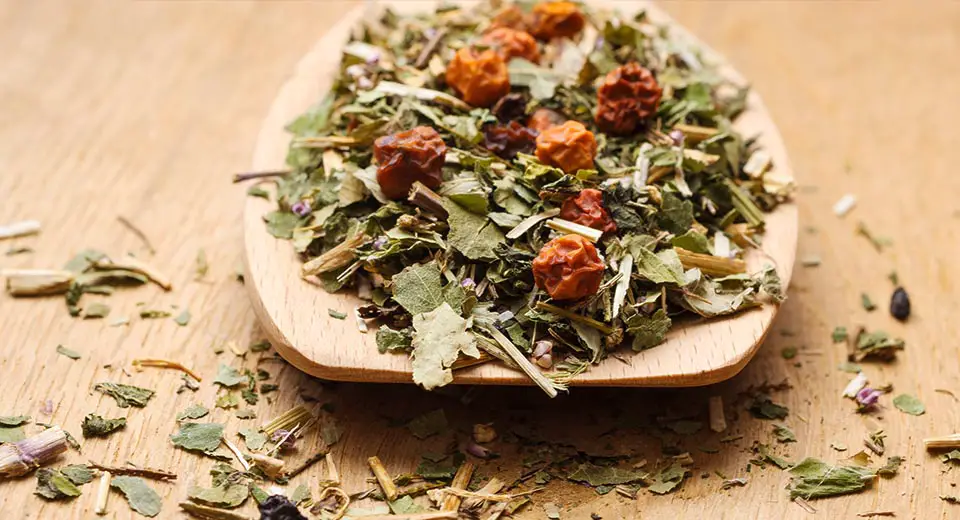
Herbal tea/fruit tea
This is going to be very specific and it’s not going to be backed up from any science or data. Just common sense. I like tea and I have several types of teas. The usuals green and black teas, some rooibos red tea and of fruit teas, herbal teas, and mixes.
Most of these being simply dehydrated plants and herbs in hot water, you shouldn’t be concerned about it breaking your fast. But among those, specifically in some fruit teas and mix, you’ll fall upon chucks of dehydrated fruits. These are dehydrated, but that doesn’t get rid of the fructose they contain. So basically, some of these infusions containings some types of chunks of fruits that could provide some fructose which would technically break a fast.
I’m putting it under the “will break a fast” section as a small warning. You might be fine with most of those herbal/fruit tea, but just be aware that they could potentially be “fat breakers”.

Bone/vegetable broth
Broths have been getting a lot of traction in the diets and fasting communities these last years. Especially bone broth, coming along with a long list of benefits, including:
- Reducing inflammation and improving gut health
- Supporting weight loss by helping you feel satiated
- Helping you keep healthy bone structure, nails and teeth with collagen
- Improving your sleep quality through glycine
I advocated for it in my article on the 6 best foods to eat before a prolonged fast with and, at the other end of the spectrum, the 11 best foods to break a fast with. Broths are also rich in essential electrolytes such as sodium, potassium, and magnesium.
But don’t be fooled, fasting with a bowl of broth every day is not strict fasting. Broths contain calories through proteins, fats and sometimes even some carbs. It’s great food, but it definitely isn’t fast safe.
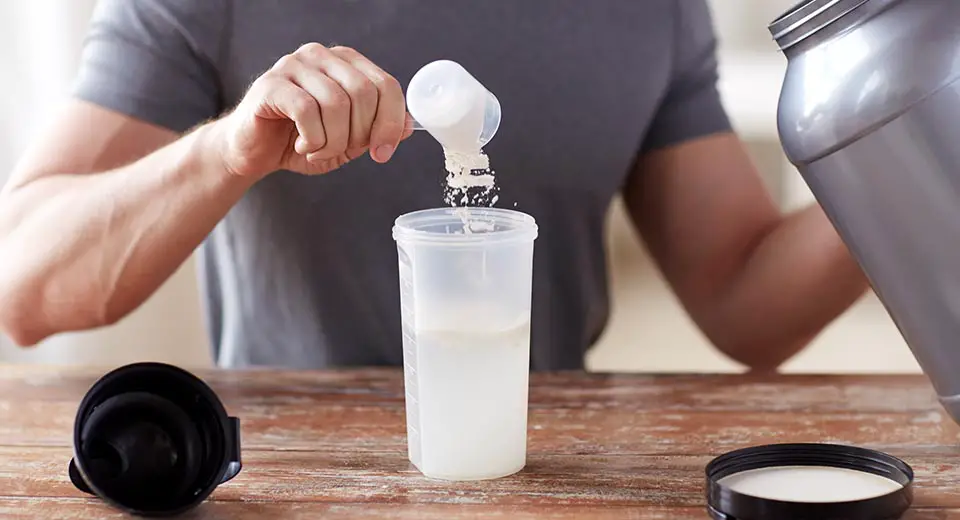
Protein powder
It seems that many people working out and implementing intermittent fasting seem to wonder if it would be fine to have your protein shake in the morning and still not break your fast. It’s a fair question, but it has a pretty obvious response: it’s protein powders, it has calories, it triggers an insulin response., it breaks a fast
So as simply put as I can, protein powders are definitely a no-go when it comes to fasting. Restrict them to your eating window, even if it doesn’t fit with your workouts schedules. I’m not sure having a protein shake right before working out is that important anyway since the proteins you’re getting from the shake won’t be fully metabolized and used by your muscle for the next 24 to 48 hours.
Will XY break a fast: shoot!
I didn’t cover every possible food in-depth, so there still might be some food, drinks or other substance that you might wonder: does it break a fast? Here are the ones I could think of and my quick answers.
Will marijuana break a fast? Like smoking tobacco, marijuana shouldn’t break your fast. Read more about it here and the effects of fasting on THC here.
Will vaping break a fast? No, it won’t. The sweetness you get from the flavors is coming from artificial sweeteners.
Will diet soda break a fast? As I mentioned above and in my article on artificial sweeteners, diet soda won’t break a fast. But they have many other disadvantages.
Will supplements break a fast? Supplementing with minerals won’t break your fast, I would even advise considering doing so on prolonged fasts. But depending on the type of vitamin (fat-soluble like K, A), as I stated above, the supplements could have added fat for absorption that couldn’t be taken on an empty stomach.
Will sugar-free gum break a fast? No, it won’t, but it comes with other negative effects on gut health and cravings.
Will cinnamon break a fast? Cinnamon has calories, proteins, and even some carbs. Sparkling some on your daily coffee shouldn’t have a huge effect on your metabolism, but again, it technically breaks a fast.
Will toothpaste and brushing my teeth break a fast? It may seem like a dumb question, but the sweet taste of toothpaste might leave you wondering. Of course, you’re not exactly ingesting the toothpaste, but the sweetness and taste do come from somewhere. Most of them simply have added artificial sweeteners, so like gum or diet soda, it shouldn’t break a fast.
Will cucumber, mint, etc. water break a fast? When you cut or squeeze a vegetable or herb, you might ingest some chunks of it. But simple cucumber slices infused in water, or some mint, shouldn’t break a fast. It’s the same thing as herbal or fruit tea, minus the fructose packed chunks.

